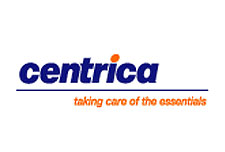LONDON: Home buyers in the U.K. have been advised not to postpone their decisions on mortgage deals in the hope of getting cheaper fixed rate deals. It is possible that the rates may in fact go up in view of a surprise disclosure by Bank of England that core inflation in the country was at its highest for a decade.
Some of the lenders have already raised rates on their best buys while some have withdrawn them in the light of the central bank’s announcement, which almost made it clear there will not be any more rate cuts in the immediate future. The bank had brought the base rates by a quarter of a percentage point to 4.5 per cent.
Banks have said swap rates (rates banks charge to lend money to each other) have risen in recent weeks, which affected the price of some fixed rate deals. Swap rates had come down before the interest rate cut, but in the light of concerns over inflation, these have climbed again. Lenders are therefore forced to revise their best deals.
Newcastle building society this week withdrew its market leading two-year fix at 4.22 per cent, while Abbey replaced its two fixes with deals that were 0.1 to 0.15 percentage points higher. Among other firms, Northern Rock and West Bromwich building societies notified that the deals based on fixed rates can be withdrawn and Portman raised its five-year fix from 4.45 per cent to 4.59 per cent.
The changes may appear inconsequential, but experts pointed out over two years the repayments on a 200,000-pound loan at 4.59 per cent could become more expensive by 1,000 pounds than those on a 4.22 per cent deal.
Savills Private Finance’s director Simon Jones told prospective home buyers: “If you want a cheap two-year fix, buy it now. If you wait a few weeks, it could be more expensive.”
As of now the cheapest two-year deal on the market comes from West Bromwich Building Society, with a rate of 4.15 per cent. However, there is a 599- pound arrangement fee that goes with it and a stipulation that homeowners must buy buildings insurance for two years.
The minutes of the last meeting of the MPC reveal that the governor of the central bank had voted against the rate cut along with Mervyn King, Rachel Lomax, Sir Andrew Large and Paul Tucker. The minutes also indicate that there will not be any further cuts in the near future. The minutes said: “The Committee’s latest projections did not support the current market view that a sequence of interest rate cuts was likely to be needed to meet the [government’s] inflation target in the
medium term.”
The central bank said consumer price inflation rose 2.3 per cent in July from a year ago, the highest annual growth rate since the data series began in 1997. This is the first time that inflation had exceeded the Bank’s 2 per cent target since it adopted the consumer price index as its main inflation measure in December 2003.




